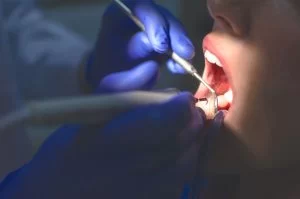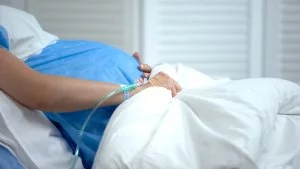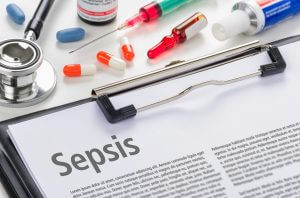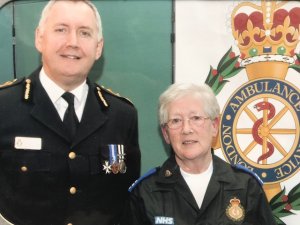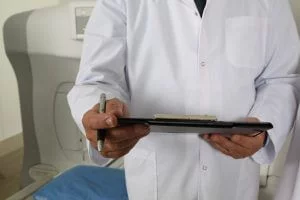Serious Injury Following TVT Surgery

Contact
Table of Contents
Case Summary
Our client, SG, attended her GP in December 2015, complaining of urinary symptoms, including leaking when she laughed or coughed. Her GP advised her to do pelvic floor exercises, and he referred her to the hospital to see a urogynaecological specialist.
SG was seen by the urogynaecologist at Eastbourne District General Hospital on 6 April 2016. The urogynaecologist thought that our client was suffering from mixed urge and stress incontinence and he made a referral for urodynamic studies in three months’ time. SG was diagnosed with a stage 1 cystocele and stage 1 rectocele. No demonstrable stress incontinence was found, but definite urethral hypermobility was noted, and the plan was for urodynamic studies to see if stress incontinence was demonstrated.
SG attended urodynamic studies on 27 May 2016, and these showed detrusor overactivity and urgency but importantly, did not show urodynamic stress incontinence. She was advised to start a prescription of Vesicare 5 mg to be increased to 10 mg later on for the next three months.
In November 2016 underwent uroflowmetry, which indicated a good detrusor muscle function. However, Vesicare had given her little benefit to her overactive bladder.
The urogynaecologist advised SG that there were two options for treating her incontinence; either tension-free vaginal tape (TVT) surgery or an autologous fascial sling. He informed SG that TVT had a very high success rate and that this was the best option for her. He informed SG that it was a straightforward procedure to be carried out under a general anaesthetic as a day case. SG signed a consent form on that day which described this procedure as “to treat SI” [stress incontinence].
Surgery
SG underwent the TVT procedure at Eastbourne District General Hospital on 22 March 2017. SG found that she could not move her left leg after surgery. She initially thought this was due to the anaesthetic. SG became worried when things did not improve, and the Consultant came to review her. He could not diagnose the precise cause, and SG was therefore admitted to a urology ward.
On the urology ward, a size 12 catheter was inserted, and SG was noted to void 800ml with a residual bladder volume of 400mls. There was no improvement in her left leg power or function. SG was advised to mobilise and was referred to physiotherapy. Over the following days, she did regain some power in the left limb but remained unable to bend her knee or hip. She was injected with 300mg of hydrocortisone to ease the nerve inflammation in her leg.
SG underwent a diagnostic MRI scan of her pelvis on 27 March 2017. Excessive oedema within the adductor muscle compartment was noted. No evidence of a recent hip dislocation and degeneration in the lower spine was observed. A review by a radiologist with a sub-speciality interest for further detail was suggested.
Removal of TVT
On 28 March 2017, the TVT tape insertion was removed, and a cystoscopy was performed, and a retropubic TVT was inserted at the same time. The same surgeon performed this as previously, who noted following the removal of the TVT that SG had made a complete recovery. However, this was not the case.
In April 2017, SG still had pain in her left leg, which started at her hip and radiated down her leg. SG was therefore referred to a neurologist and thereafter to the pain clinic.
The neurologist saw SG on 2 May 2017 and noted, “following the revision she managed to walk and improved from the motor perspective, but she has been left with residual tingling and numbness of the left thigh resembling meralgia paraethetica”. The neurologist thought the diagnosis was possibly neuropraxia, which he hoped would resolve with time. However, he referred SG on for nerve conduction studies/EMG.
In May 2017, SG was referred for physiotherapy because she still suffered from severe pain in her left leg.
SG underwent several investigations in 2017, which included an MRI scan, which showed degenerative changes at L5-S1 with loss of disc height at L5-S1 with end plate degenerative change. There was a broad-based disc bulge at this level with bilateral recess narrowing and narrowing of the exit foramina. However, there was no definite evidence of nerve root compression, and there was no significant spinal canal stenosis.
SG attended pain management and physiotherapy between 7th September 2017 and 1st March 2018 and underwent hydrotherapy. However, this did not relieve her symptoms. She continued to suffer constant severe pain down her left leg with the sensation of sandpaper rubbing her skin below the left knee.
In April 2018, SG’s hip and thigh pain was such that she could not work for one week or drive. On 25th April 2018, whilst standing in the kitchen, SG felt urine gushing down her legs this being the second occasion on which this had occurred in the past month. Her incontinence was ongoing and she suffered leaks and urgency daily. The pain would interrupt her sleep such that she became chronically tired and this, together with her incontinence, impaired her mood, her capacity for work and her family life.
Civil Case
SG instructed Nicholas Leahy, medical negligence specialist, to pursue a civil claim against East Sussex Healthcare NHS Trust.
Supportive expert evidence was obtained from a Consultant Urogynaecologist (on breach of duty and causation) and a leading neurologist (on causation). The experts thought that SG’s symptoms were incorrectly diagnosed as stress urinary incontinence rather than detrusor overactivity and that, therefore, SG had been incorrectly advised to undergo TVT surgery. The correct treatment in SG’s case would have been medication, weight loss and/or Botox, notwithstanding her previous lack of response to Vesicare medication.
Further, the medical experts instructed by Osbornes were of the view that the performance of the surgery on 22nd March 2017 was substandard in that SG was positioned with such force in the lithotomy position and/or operated on in such a manner as to cause a permanent nerve injury to the left L3/4 nerve roots as they come away from the spinal cord.
Expert evidence was obtained commenting on causation. This enabled SG to argue that had she been treated correctly with medication for her overactive bladder, she would likely have been offered Botox treatment at 3-6 monthly intervals. It was, therefore, more likely than not that her overactive bladder would have been controlled, and she would have been continent of urine. Naturally, she also would have avoided the initial surgery and the revision surgery, which took place in March 2017.
Proceedings
A Letter of Claim was sent to the Defendant Trust in May 2019. However, liability was denied. The Defendant maintained that SG had been correctly diagnosed and that surgery was the appropriate option but that she had simply suffered a recognised complication of such surgery.
The parties were unable to reach any agreement, and so in March 2020 court proceedings were issued against the Defendant hospital trust. Laura Begley of 9 Gough Chambers, a barrister, was instructed to advise SG.
The court proceedings were served against the Defendant, together with Condition and Prognosis evidence which had been obtained from a Consultant Urogynaecologist and a Consultant Neurologist. However, the Defendant maintained their denial of liability, serving a complete Defence to the claim in April 2021 (various extensions of time had to be agreed due to the SARS-COV-2 pandemic).
SG’s case was then listed for a Costs and Case Management Conference. However, shortly before this was due to take place, and following a negotiation period, the parties agreed to a five-figure settlement of SG’s case.
The settlement will enable SG to access continued care with a specialist in urogynecology. SG can now obtain a trial of anticholinergic therapy in conjunction with bladder training from a specialist continence nurse to treat her urinary urgency and urge incontinence. She will also be able to access supervised pelvic floor therapy.
In relation to the ongoing pain in her left leg, the settlement will enable SG to undergo multidisciplinary pain management treatment. The medical management will include physical treatment, injection, talking, and pharmacological therapies, all supervised by a Consultant Neurologist.
Nicholas Leahy, Solicitor in the Clinical Negligence Department at Osbornes said:
“This was a very difficult claim in which complex issues relating to breach of duty and causation remained in dispute. However, with the help of quality expert evidence from some of the country’s leading medical practitioners, I am very pleased that we obtained a positive result for SG, who can now move on with her life and access the treatment she requires”.
To speak to a clinical negligence specialist about your case, please call Nicholas Leahy, or complete an online enquiry form.
Share this article
“Small but very effective and experienced team so every client benefits from the personal touch but also highly skilled litigation know-how. Capability of the team means they can handle all aspects of very complex cases as well as straightforward matters.”
“Osbornes Law is an established firm which handles a breadth of complex and high-value clinical negligence matters.”
"Nicholas Leahy works extremely hard and understands the commercial sensitivities of clinical negligence litigation."
Excellent service from Osbornes throughout on a difficult clinical negligence claim. Nicholas Leahy who handled the claim was responsive and professional throughout, while also providing pragmatic advice and clear drafting.
Working with Osbornes Law was the best decision I could have made. Nick was really attentive to my issue and did a very thorough job. He truly made the process headache free! Highly recommend them.
Nick Leahy has been my Solicitor throughout this journey and has been absolutely amazing; kind, approachable and extremely supportive... Through some dogged determination by Nick we achieved our goal without having to go to trial. I cannot thank Nick, Stephanie and all of the team at Osbornes highly enough for achieving a very favourable settlement, the outcome of which will make a huge difference to myself and my family.
Insights from Nicholas VIEW ALL
- 29.1.2025
£27,000 DVT Claim Settled Against Royal Free London NHS
Successful settlement for DVT case against Royal Free London NHS Foundation Trust Successful Settlement of £27,000.00 for DVT Claim against Royal...
Read more - 19.9.2024
Report highlights failings in maternity care
The Care Quality Commission (CQC) has recently carried out a national review of 131 maternity inspections between 2022 and 2024, finding that failures...
Read more - 17.7.2024
Settlement for Delay in Wrist Fracture Treatment
Our Clinical Negligence team have recently agreed the settlement of a case relating to a delay in the treatment of...
Read more - 28.6.2024
£55,000 Settlement for Stillbirth Claim Against Chelsea and Westminster...
Successful Settlement for Stillbirth Claim Against Chelsea and Westminster Hospital NHS Foundation Trust Background Nick Leahy, an Associate in our...
Read more - 30.4.2024
Settlement In Neonatal Death Case
Settlement in fatal medical negligence case against King’s College Hospital Nick Leahy, Associate in our Clinical Negligence department, recently...
Read more - 8.4.2024
Epilepsy Negligence Compensation Claim
Nicholas Leahy, an Associate in the Clinical Negligence team at Osbornes Law, has recently settled a long-running fatal medical negligence...
Read more - 5.1.2024
Delayed Pre-Eclampsia Diagnosis Results in Loss of Baby
Introduction to the case Nick Leahy, Associate in our Clinical Negligence department, has recently settled a birth injury claim against...
Read more - 11.4.2023
Osbornes Instructed After Local Authority Data Breach
Osbornes Law has recently negotiated a settlement on behalf of two clients who had their personal information inadvertently released to...
Read more - 23.1.2023
Settlement agreed in dental negligence claim
Recent Settlement in a Complex Dental Negligence Case The Medical Negligence team have recently negotiated the settlement of a complex...
Read more - 13.1.2023
Delayed diagnosis of appendiceal cancer
The medical negligence team at Osbornes Law has recently settled a case involving a patient who passed away following a...
Read more - 2.10.2022
Tragic Case Involving a Home Water Birth
Introduction to the case Nicholas Leahy is acting for a young woman who had a water birth at home and...
Read more - 23.5.2022
Uterine Rupture Claim Against King’s College Hospitals
Significant settlement in uterine rupture claim The birth injury solicitors at Osbornes Law recently secured a significant settlement for a...
Read more - 25.1.2022
Serious Injury Following TVT Surgery
Case Summary Our client, SG, attended her GP in December 2015, complaining of urinary symptoms, including leaking when she laughed or...
Read more - 13.1.2022
Secondary Victim Claims
Court of Appeal Judgement on Secondary Victim Claims Judgment was today handed down by the Court of Appeal in the...
Read more - 12.1.2022
Wrongful birth claim successfully settled
Background to the case Our client, J, fell pregnant in October 2015 and took the difficult decision to undergo a termination....
Read more - 29.10.2021
Medical Negligence Case Study: Iron infusion cannula injury
Nick Leahy, Solicitor in Osbornes Clinical Negligence team recovered damages for his client who suffered an extravasation injury following an...
Read more - 3.10.2021
Greater Awareness of Sepsis Needed
Greater awareness of Sepsis can lead to better outcomes As medical negligence lawyers, we were particularly interested to hear about...
Read more - 20.9.2021
Osbornes Law Represents Family in Fatal Medical Negligence...
Negligent Hospital Care Leads to Tragic Death Osbornes Law is representing the family of a former NHS employee who suffered...
Read more - 13.7.2021
Heart Failure Claim Against NHS Trust
Claim against Epsom & St Helier University Hospitals NHS Trust Nick Leahy, medical negligence solicitor at Osbornes Law was instructed...
Read more - 9.7.2021
Legal Support For Bereaved Families
What legal support is available for bereaved families? The loss of a loved one is an extremely distressing time for...
Read more - 1.7.2021
Stillbirth following water birth at home
Nicholas Leahy acted for a young woman who had a water birth at home and two midwives were allocated to...
Read more - 18.5.2021
Failure to Diagnose & Treat Ogilvie’s Syndrome
Delayed diagnosis of Ogilvie’s syndrome after Caesarean birth Our client suffered the consequences of a delayed diagnosis of Ogilvie’...
Read more - 18.5.2021
Claim for Injury to Superficial Peroneal Nerve
The clinical negligence team at Osbornes Law have this week successfully negotiated the settlement of a case in which our...
Read more - 13.11.2019
Fatal Claim against West London NHS Trust
Claim Against West London NHS Trust Case Overview I recently acted in a fatal medical negligence claim against West London...
Read more











